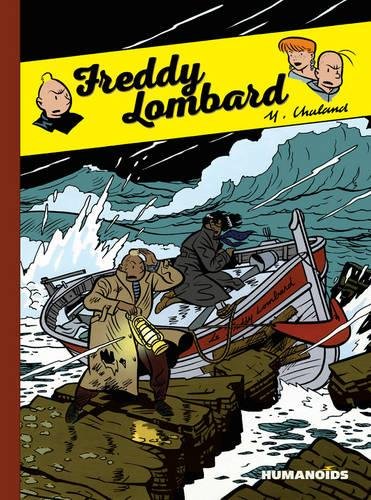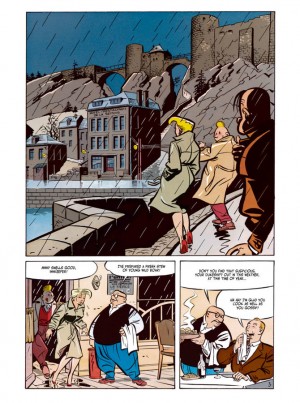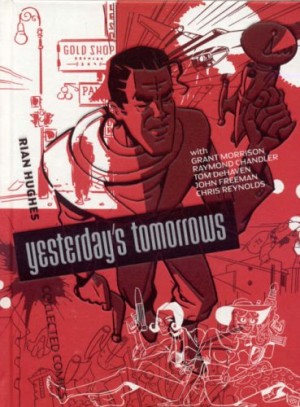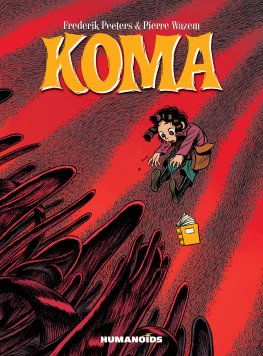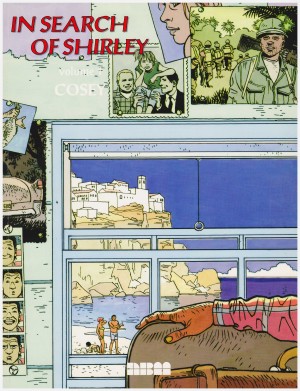Review by Ian Keogh
Tintin has been a global success for decades, and in the sphere of European comics the ligne claire cartooning (lacking shadows and light sources) has been incredibly influential, as has the album format in which his books were published. It’s perhaps surprising, though, that the character himself has spawned very few creations beyond parodies and homages. The most successful reworking of the formula was via the Freddy Lombard stories produced by Yves Chaland between 1981 and 1990, now all collected within these covers.
Chaland’s busy cartooning didn’t draw so much on Hergé but on other children’s comic artists of the 1950s. Hints of Jijé and Peyo are visible in what he called an ‘atomic style’, and its retro look would in turn inspire many others. The art has a greater individuality to it than the Tintin books, and the panel compositions are slightly less elegant, but there’s a far greater sense of movement, and distinctive visual characterisation.
Having selected his style early, Chaland didn’t require much in the way of refinement, but his panels over the later material are far better composed than those from the earliest stories. It’s with his writing that Chaland’s great leaps come. The opening tale is set half during the 13th century crusades and half in the present (or the 1980s if you’re picky, although Chaland’s references are deliberately timeless), and while it has moments, it’s a shaggy dog story. There’s a definite improvement by the next, and the third featuring the recurring motif of an elephant’s death is a very tidy twenty pages. It’s the leap to long form stories that’s the making of Freddy Lombard, though, and three feature, all very different in tone.
‘The Comet of Carthage’ is a mood piece, with the cast stuck in a seaside town among the eccentric inhabitants, with Freddy in love. ‘Holiday in Budapest’ is Chaland’s political story, a stirring adventure set in a repressed country during turbulent times, and ‘F.52’ is a brilliantly conceived exercise in enclosed storytelling. It occurs almost entirely on an experimental passenger plane flying to Melbourne, and focuses on several groups with children along with the problem of a spy on board.
The main trio of characters work well in conjunction, their contrasting personalities prepared for most eventualities. Freddy is impulsive and Sweep stronger than most, but short-tempered. Dina contrasts them both by being more intellectual and she’s more likely to consider the consequences of what they’re doing. Chaland also builds up his supporting characters superbly, and this collection of the entire Freddy Lombard catalogue showcases this. The bit players in the opening story are barely a step away from caricature, but by ‘F.52’ they’re fully rounded with foibles, motivations and weaknesses.
This really is a book of continual progress, with each story better than the last, all wonderfully drawn, and the final two stories five star material. There’s a sadness when anyone dies young, but in Chaland’s case this was an incredibly talented creator just having fully mastered his craft.
Unless price is an issue it would be difficult to understand why anyone would want a different edition, but there is also the option of the material being split over two collections titled Chaland Anthology.
